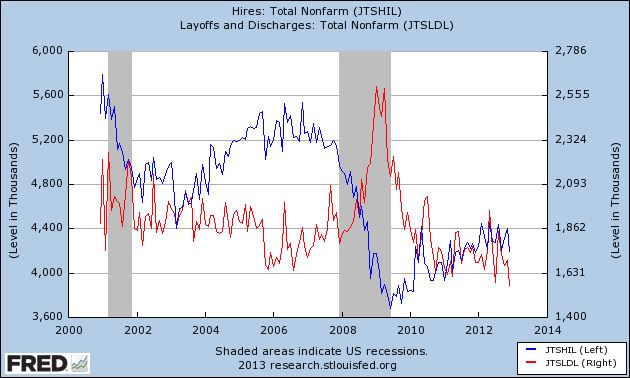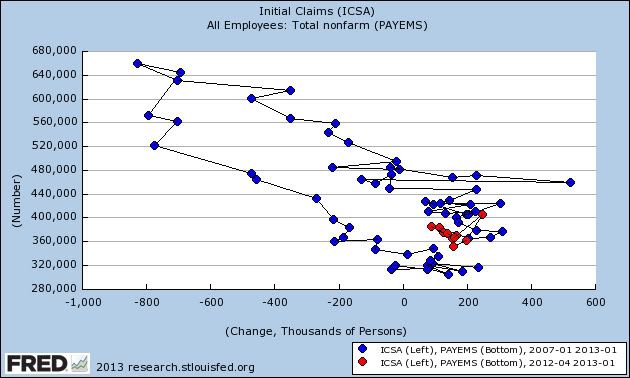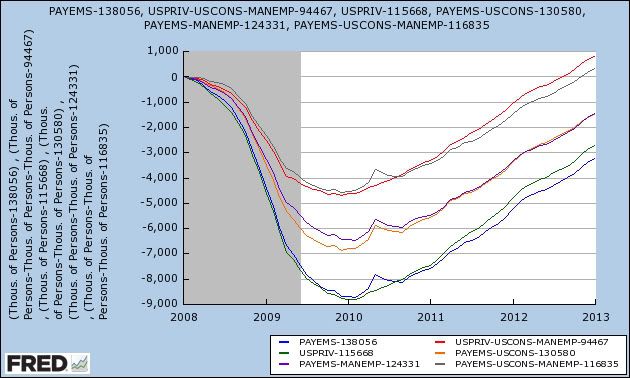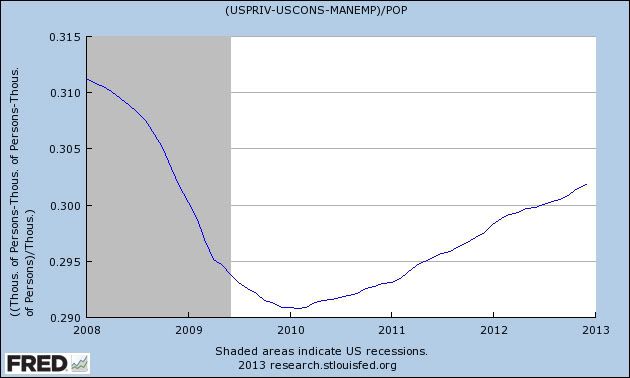- by New Deal democrat
I've taken a little bit of a mental health break the last couple of weeks, and truth be told, there isn't a lot exciting happening, with the exception of waiting to see how the payroll tax increase plays out.
In the final analysis, the economy is supposed to serve the people, not the other way around. Hence my particular focus on employment vs. other issues, e.g., ones that mainly investors watch. Thus it has been disappointing to watch a recovery which already wasn't "good enough" downshift into one just barely moving forward, or what I've called "shambling along."
The most recently reported monthly data has done nothing to cause me to change that appraisal.
One of my themes has been that "hiring leads." In that regard, last week's JOLTS data continued a strengthening warning that hiring is in decline. Specifically, here is the JOLTS hiring graph:

While we don't have a long history with this series, it does support the idea that hiring actually declines well before the onset of a recession. And the last 6 months or so clearly show a small decline in hiring.
Another graph I have used to plot the same idea has been a scattergraph of jobs vs. initial jobless claims. The point here is that, as a recession approaches, we get less "bang for the buck," i.e., for any given level of new layoffs, we show fewer countervailing jobs added. In the graph below, this shows up as a shift towards the left at the same level of initial claims. This relationship clearly weakened beginning in April of last year (red), and that weakness continues:

Also, the concentration of the weakness in job growth since employment bottomed 3 years ago continues. Here is a graph from January 2007 to the present of the number of total job losses in the economy (blue), compared with job losses ex-construction (orange), job losses ex-manufacturing (purple), job losses ex- manufacturing + construction (green), and job loss ex- manufacturing, construction, and government jobs (red):

It is encouraging that, excluding the three most impacted areas, or even just manufacturing and construction, all of the jobs lost in the "great recession" have now completely been made up.
But when we take into account population growth, even exclusing the job sectors at "ground zero" - manufacturing and construction - only about half of all the jobs we need to add back into the economy have materialized.

I have become increasingly pessimistic that this poor situation will be where we start the next recession, whenever it happens.